Marvel’s Moon Knight, Dissociative Identity Disorder and Why It Works
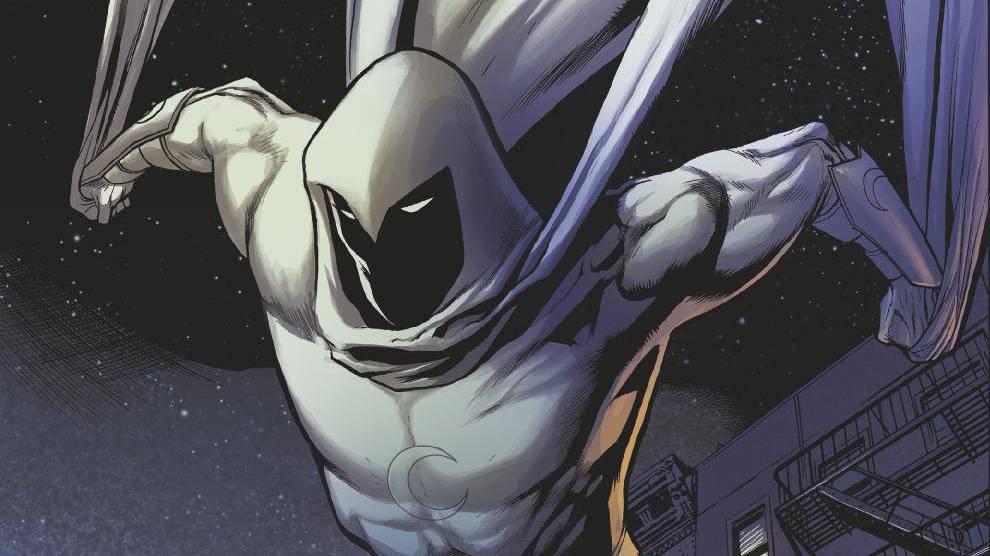
Join the community on Reddit for the latest Marvel & DC news!
“I don’t wear white to hide myself, I wear it so they’ll see me coming. So they know who it is, ’cause when they see white it doesn’t matter how good a target I am. Their hands shake so bad, they couldn’t hit the moon.”
Of all the characters in comics, none have the ability to be as captivating as Marvel’s Moon Knight. Not only is he one of the most interesting characters under the Marvel umbrella, but he’s also one of the most underrated. Moon Knight, for lack of a better description, has spent his existence trying to turn from “b-list” Marvel character into an “
Moon Knight is a martial arts expert who, as a result of his business dealings, is wealthy beyond measure. He dishes out his own personal form of justice and his justice isn’t something to be trifled with. He operates on top of the dark night skies and does so at a level different from most other superheroes.
If all of this sounds familiar to you, you’re probably on the right track.
Moon Knight has often been considered Marvel’s answer to Batman. Both were born from tragedy. Both operate on or near the line that separates heroism from villainy. And both use their vast resources to aid their cause. Where they differ, however, is, while Batman’s antics have some considering him crazy, Moon Knight might actually be crazy.
But we’re getting ahead of ourselves.
For anybody not a fan of the character, Moon Knight’s history isn’t as known as, say, Batman’s.
Marvel’s Moon Knight origin
Born to the son of a Rabbi, Marc Spector’s (Moon Knight) family left Europe as a means of escaping death and torture. As the young Marc grew, so too did his desire for more. As a consequence and when given the opportunity, Marc enlisted and became a C.I.A. operative.
Marc’s brother, Randall also joined the C.I.A. but rather than using his position for good, he used it for his own benefit. Basically, as an agent, Randall began selling weapons to those in the world who probably shouldn’t have them. One day, Marc’s girlfriend Lisa overheard some plans that Randall was making. Even though she was the girlfriend to his brother, Randall was left with no choice but to kill her. Due to this, Marc was also left without a
He took up work under Raoul Bushman. While working for Bushman, Marc suddenly became aware of the kind of people he was associating with. This led him to question exactly what he was doing and where his life was headed.
At no point was Marc’s concern more apparent than during a mission in Africa. While on the continent, he, Bushman, and the team that accompanied them stumbled across the dig site of the
Frustrated by Marc’s betrayal, Bushman violently attacked him leaving Marc clinging onto life. With everything he had left, Marc made his way into the tomb, collapsed and died in front of both Marlene and a statue of the Moon God, Khonshu. As Marlene lay over top of him crying, Marc suddenly came back to life. When asked how he told her that he had been brought back to life by Khonshu to be his Moon Knight of Vengeance.
Make no mistake, Moon Knight’s origin is one of the best in comics. It, however, is only but a small portion of what makes the character so great.
Anti-Hero
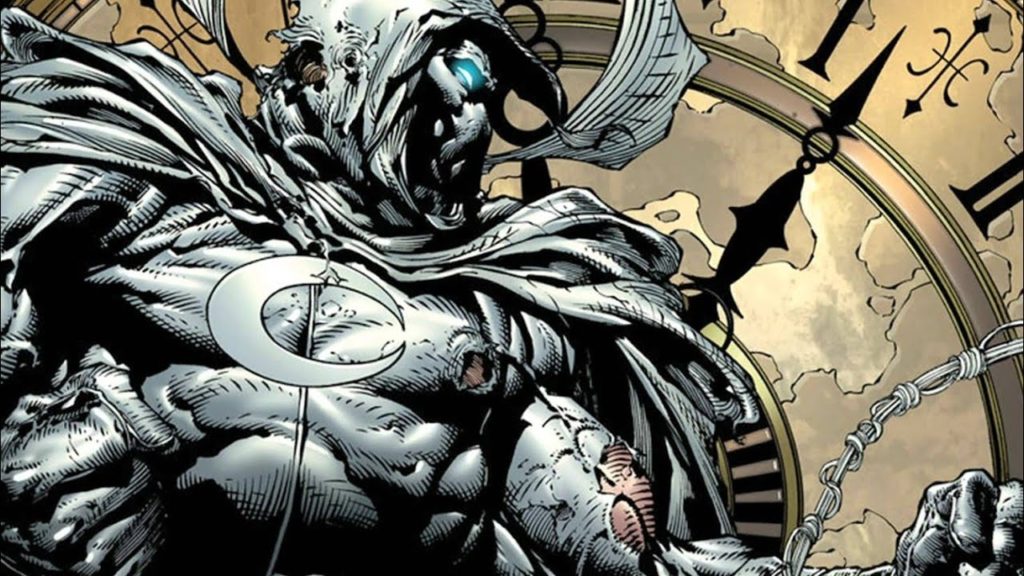
Marvel’s Moon Knight is an Anti-Hero. He teeters on the edge of heroism and villainy often taking the extra steps that other Anti-Heroes wouldn’t dare take. Whereas DC’s Batman, who he’s compared to, has a semi-upheld no kill code, Moon Knight has no problem taking life. This, while making for a very unique reading experience, sees Moon Knight as untrustworthy by other heroes. In fact, more often than not, other heroes hope that Moon Knight doesn’t show up if trouble arises.
Which leads me to ask you…
If Batman and Moon Knight are both Anti-Heroes, what is an Anti-Hero? I mean, is it simply a word used to categorize a list of characters who don’t fit anywhere else? If so, the very use of the word creates confusion.
Just think about these characters:
- Batman
- Deadpool
- John Rambo
- Wolverine
- Catwoman
- Deadshot
- John Constantine
- Judge Dredd
- Punisher
- Mad Max
Each is an Anti-Hero but all for very different reasons. The very nature of the Anti-Hero opens a topic that could be debated without ever finding a resolution.
So, let’s check the dictionary.
The Cambridge Dictionary defines it like this: “
By this definition, Batman is an Anti-Hero because he fails to overcome the death of his parents. By this definition, Wolverine is an Anti-Hero because he is unable to deal with his anger. And by this definition, Catwoman is an Anti-Hero because even though she is a thief, she feels for and helps those less fortunate.
You see, the funny thing about labeling a character an Anti-Hero is that the very definition is all-encompassing. Every character, no matter who they are is inherently flawed. I’d even go as far as to argue that all characters are Anti-Heroes.
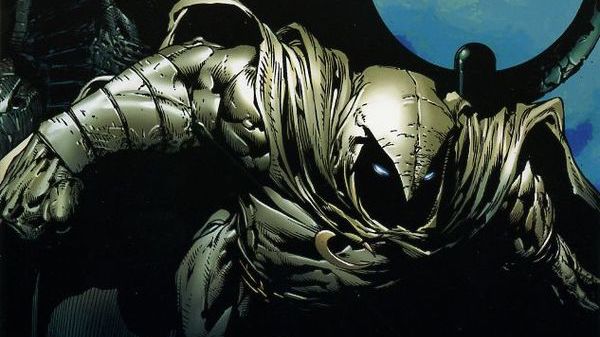
As such, Marc Spector is an Anti-Hero. His flaw, Dissociative Identity Disorder, unlike, let’s say Wolverine’s flaw, causes him to be one of the most fascinating and engaging characters in the history of the medium.
Let me explain.
If confusing and convoluted had a name, it would be Marc Spector. In fact, Marc Spector is just one of a few names that Moon Knight goes by when not out as Moon Knight. The others, Jake Lockley, Mr. Knight, Steven Grant, and some may argue Khonshu, are cleverly(?) created versions of himself that allow him access to people and information that he wouldn’t otherwise have access to.
If you’re lost, allow me a chance to help you.
Medicine Net defines Dissociative Identity Disorder as, “A neurosis in which the personality becomes dissociated into two or more distinct parts each of which becomes dominant and controls behavior from time to time to the exclusion of the other parts.”
If that doesn’t mean too much to you, think about it this way. Marc Spector has multiple personalities, each of which when in control, sees him act and speak in manners all to themselves. Not only do the personalities act and speak in different ways, but they often don’t remember or know of what each has done.
For example…
Steven Grant is Marc’s millionaire persona. As a millionaire, Grant is usually found at charitable functions rubbing shoulders with the rich and famous. Of the three personalities, Grant does the least for Marc’s vigilante life. Certainly, it’s Grant’s money that funds Moon Knight’s endeavors, but outside of that, Grant is all but useless.
His second personality, Jake Lockley, is, outside of Moon Knight, Marc’s most violent form. He has a short fuse and is known to use less than admirable measures to get what he wants. Lockley patrols the world at a street-level and as such, often becomes aware of activity well before it happens. Of the many personas he possesses, Lockley is one of the most fun to watch.
Mr. Knight is a newer addition to the Moon Knight story. Whereas Moon Knight uses force, violence, and brutality to get what he wants, Mr. Knight typically acts within the confines of the law. Because he works within the confines of the law, he can often be found helping the police. All of this doesn’t mean that he won’t get his hands dirty if needed but instead simply means that he prefers not to.
And then there’s Khonshu, the supposed God who bestowed Marc with power.
Khonshu
Since Moon Knight’s creation, most have thought that Khonshu, while a God, is nothing more than a mental representation of Marc’s beliefs. And if you think about it, it makes perfect sense. Khonshu has never been seen, heard, or felt by anyone other than Marc. Instead, he’s a figure that Marc claims to have been responsible for bringing him back from death.
Of course, this assumes that he actually died.
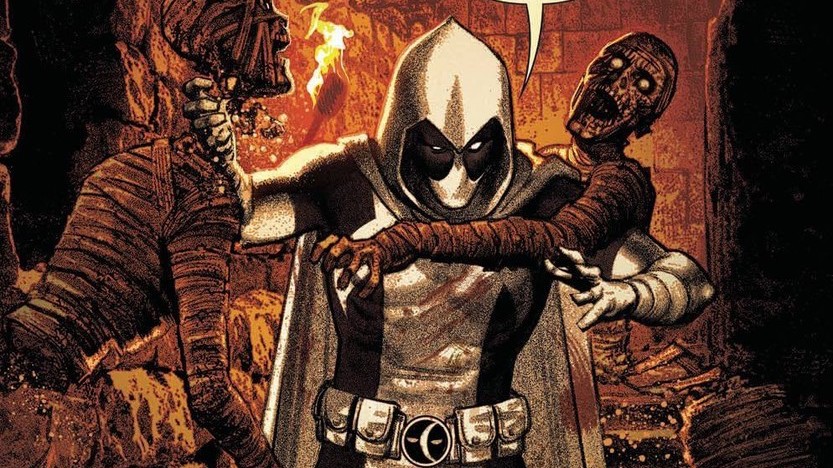
The story has always been the same as I told it above…Marc died and Khonshu brought him back. But did he actually die or is Khonshu just a personality made up to explain Marc’s behavior?
We may never actually know so let’s focus on what we do know.
Most of what causes Marc pain is caused by Khonshu. Think about this…If not for Khonshu, Marc would’ve died on the alt
And why?
Simple.
It’s because of Khonshu that Marc Spector is so interesting. It’s because of Khonshu that Marc Spector is filled with so much personality. And it’s because of Khonshu that we tune in each month to find out what sort of pain Marc find himself in. What I’m saying is that Khonshu, not Marc Spector is the driving force behind Marvel’s Moon Knight character.
And it’s because he drives Marc that the character works so well.
Marc is locked in an eternal battle with himself because he’s lost control over who and what he is. Khonshu did that. No matter how hard he may try, the Moon God toys with Marc and bends him to his own will…all of Marc’s own design. On the day he died, he made a pact with Khonshu that if brought back, he would do whatever was asked of him. And he, for better or worse, does exactly that. Khonshu is the cause and effect of Marc’s life. As a character with an already frail mind, spending your life indebted to another is no way to live.
D.I.D. and Moon Knight are linked so much that recently, Marc was admitted to an insane asylum. While at the insane asylum, workers and doctors tried to convince Marc that Moon Knight was nothing more than Jake Lockley, Steven Grant, Mr. Knight, or any personality he had created.
And if true, it adds a whole new layer to Marc Spector.
D.I.D.
People with D.I.D. often create alternate versions of themselves as a coping mechanism of whatever is currently happening to them. According to the Cleveland Clinic, “About 90% of the cases of DID involve some history of abuse. The trauma often involves severe emotional, physical, and/or sexual abuse. It might also be linked to accidents, natural disasters, and war…Dissociation is often thought of as a coping mechanism that a person uses to disconnect from a stressful or traumatic
He is the son of a Holocaust Survivor who fled Europe to escape persecution. He enlisted in the C.I.A., watched his brother follow suit, and then had to cause extreme harm to him. If that weren’t bad enough, he became a mercenary and performed some of the most heinous crimes imaginable. Then, after finally having a moment of clarity, was killed.
Remember, the challenge with the disorder, as we see in the character, is memory loss. More often than not, those affected (Marc included) lose total control and cannot remember what happened while acting as another. Jake Lockley. Steven Grant. Mr. Knight. Marc Spector. Khonshu. Moon Knight. Marc has fought no shortage of villains in his time but none, and what I’m about to say is said with absolute empathy in my voice, are as interesting as the ones he fights in his own mind. Moon Knight works because Moon Knight may not actually exist.
But that isn’t all. The way in which he’s written is perfectly done.
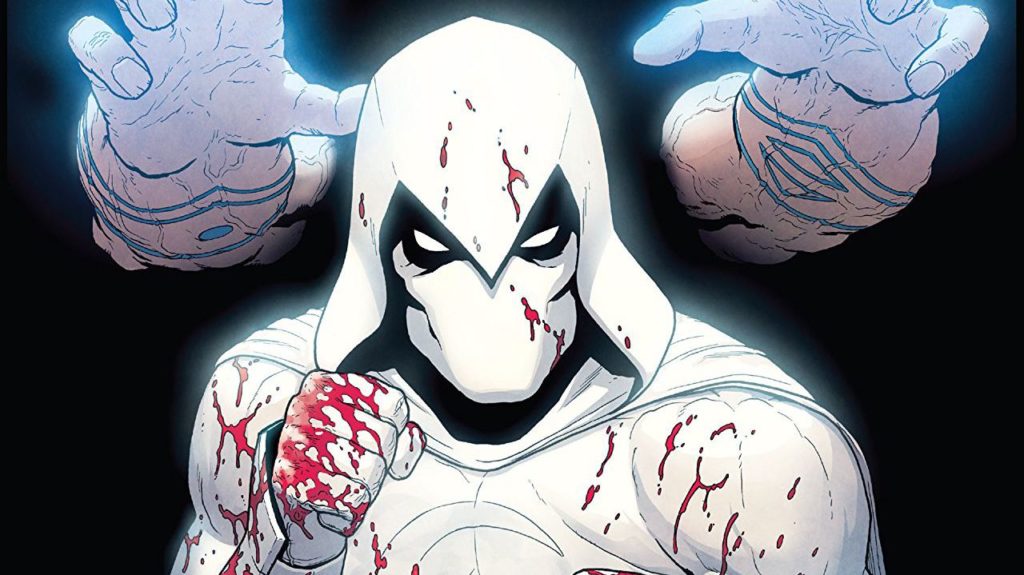
The Moon, the source of Marc’s powers is a direct metaphor for his disorder. Many scientists have drawn the conclusion that as the Lunar Cycle occurs, the way in which humans act, changes. Some say that human behavior, more specifically human violence, increases as the Moon becomes more full…that is, the moon creates instability. As a character with the word moon in his name, this couldn’t be truer. The higher and fuller the moon gets, the stronger, faster, more unstable, and deadlier he is. What I’m saying is that the moon, similar to how scientists explain human behavior, changes Marc.
I know that I’ve already said it but it’s precisely everything above that makes Marvel’s Moon Knight books so damn interesting. Not only is he locked in an eternal struggle with himself, but is nearly impossible to decipher what’s real and what isn’t. Just one quick look at Jeff Lemire’s run on the character and you’ll see exactly what I refer to.
Jeff Lemire
The run, created in 2016, sees Marc fully embrace his own shortcomings…not run from them, embrace them.
The 14-issue work captivates its audience through brilliant, edge of your seat storytelling without ever really relying on over-the-top violence…a trait all too familiar to Moon Knight. And how does it do this? Simple. It sees Marc and his other personalities come together as one to rid their worlds of that which harms them…themselves.
The most remarkable part of the book is that it’s a look into a world that very few people can or will ever understand. It allows the reader to delve into a world that
At the end of the day, Marvel’s Moon Knight works because he is locked in a battle that he will never win. He doesn’t require high profile villains, a laundry list of superpowers, or anything else most good heroes require. His character has endured because he hasn’t had to lean on the success of others to remain relevant.
Moon Knight, like so many other great characters, has enabled writers to shed light on real
So, may they be around forever.
Cheers,
Joel
Liked this article? Join the community on Reddit for the latest Marvel & DC news!

